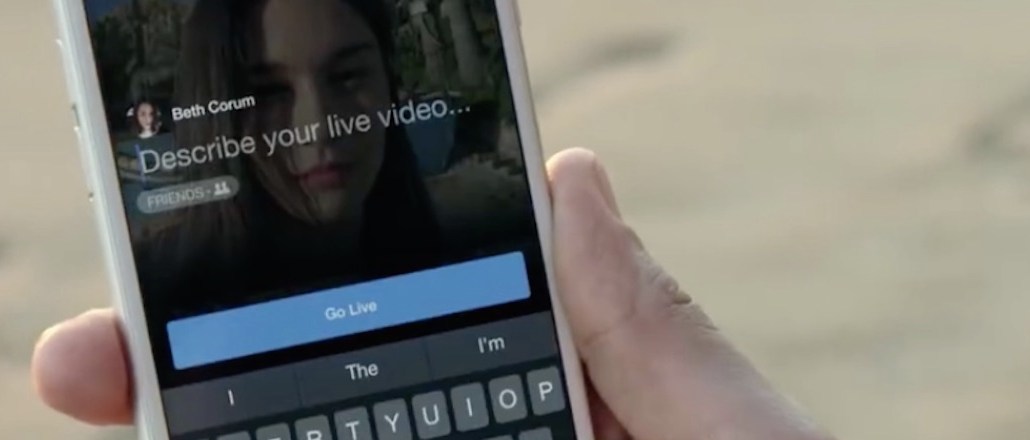Secure your place at the Digiday Media Buying Summit in Nashville, March 2-4
‘Super Tuesday 2’ was a big night for publishers streaming live on Facebook

“Super Tuesday 2” was a big night for Donald Trump and Hillary Clinton. But there was another group that has a lot at stake this election season: A growing number of news outlets that are embracing Facebook live streaming.
Legacy news outlets including ABC News, CBS News, NBC News and Univision, as well as digital stalwarts like The Huffington Post and Vox.com, all went live throughout Tuesday. For all of them, it was an opportunity to inform viewers about the latest primary news and results as well as what it all meant.
ABC News, for example, went live three times: Once on its flagship page and twice on the page for its late-night news series “Nightline.” The broadcast on the main page, which has collected more than 108,000 views in less than a day, was a “scene-setter” to get viewers used to tuning in for important primaries and debates during the election cycle, according to Dan Linden, global head of social media for ABC News.
“This was the most important primary day yet and a further narrowing of the field,” he said. “We wanted to engage our audience and answer questions they had — and the quality of questions were substantial.”
For a broadcaster like ABC News, which already does daily live streams on its website, Facebook offers a faster way to get closer to more viewers. Its flagship page is about to hit 8 million fans and its live streams on the platform are already generating higher engagement: Where regular posts might get hundred or more comments, live streams typically see thousands, according to Linden. This is because its most successful live streams are typically getting as many as 20,000 live viewers.
In terms of content, Facebook live streaming is about access and information for ABC News and other broadcast outlets. Viewers get a chance to see things they don’t have the ability to go to — a debate stage, for example — or get information and analysis from political experts. NBC News, for instance, did a live stream on Tuesday with “Meet the Press” moderator Chuck Todd.
“This isn’t something we’re doing for fun,” said Linden. “This is part of our social strategy moving forward.”
Digital publishers are also serious about Facebook Live, especially during important election nights. Both The Huffington Post and Vox.com went live multiple times last night. The HuffPost Politics page went live six times yesterday with reporters on-site at different political rallies and events in Florida and Ohio. Vox, meanwhile, went live three different times as the night’s events unfolded, races were called and Marco Rubio quit.
“We’ve found that people will even watch a straightforward live stream of a rally or town hall because it gives the access to the way candidates are talking on the trail, which is often different from how they present themselves on the national stage,” said HuffPost executive editor Liz Heron.
While HuffPost plans to do more live streams, right now it’s taking an opportunistic approach to Facebook Live, according to Heron. “We are looking for opportunities to go live when there’s a chance our community will want to watch and interact with us.”
Which brings up one key issue as Facebook Live continues to gain traction: users’ willingness to watch live streams. Right now, whenever a Facebook page starts a live stream, its followers are sent a notification. Users will soon be able to opt out of receiving these notifications, which might affect the potential reach of any Facebook live stream.
And as the election heats up, Facebook live streamers are keeping this in mind and are hesitant to adopt a strategy that has them going live on a daily basis.
“We want our audience to keep engaging with these. We don’t want to overwhelm them by any means,” said Linden. “We don’t want to get to a point where we are annoying folks with a notification every hour saying we’re going live.”
More in Media

Media Briefing: Turning scraped content into paid assets — Amazon and Microsoft build AI marketplaces
Amazon plans an AI content marketplace to join Microsoft’s efforts and pay publishers — but it relies on AI com stop scraping for free.

Overheard at the Digiday AI Marketing Strategies event
Marketers, brands, and tech companies chat in-person at Digiday’s AI Marketing Strategies event about internal friction, how best to use AI tools, and more.

Digiday+ Research: Dow Jones, Business Insider and other publishers on AI-driven search
This report explores how publishers are navigating search as AI reshapes how people access information and how publishers monetize content.





